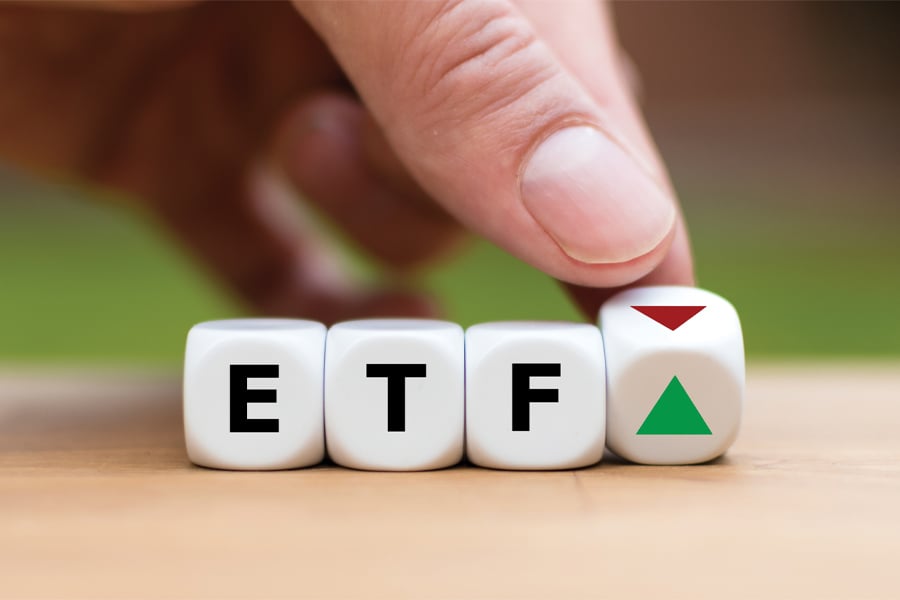

Global index provider Alerian has acquired ETF Trends and ETF Database in a move that could alter the way exchange-traded funds are developed and marketed.
ETFs are already the fastest-growing segment of asset management and especially popular among financial advisers, and they're quickly adapting to a more nimble and digitally creative world in which strategies can be created and customized based on recent investor trends and interests.
The newly combined enterprise, which will be headquartered in Dallas, will leverage the industry research and data-tracking capabilities of the two ETF enterprises with Alerian’s strength in developing indexes that are tracked by ETF providers.
“What makes this so exciting is the fantastic complementary extension to redefine the index provider service model,” said Robert Hughes, chief commercial officer at Alerian, which has more than $20 billion benchmarked to its indexes.
“We believe we will set a new standard for what it means to provide a full service offering and next-generation index development,” he added. “What we are, as a combined entity, able to do is understand and identify the market and what investors are looking at right now.”
That insight into market demand among retail investors, financial advisers and institutional investors will come via the ETF Database business, which combined with ETF Trends in 2019.
Tom Lydon, who founded ETF Trends more than 20 years ago to conduct research and provide content on the evolving ETF industry, compared the data on investor interests to the trends that can be detected by studying Google searches.
“Right now, for example, we know from surveying investors and advisers that inflation is something they’ve been worried about for over a year, and you can tell by the types of ETFs they’re researching that they’re positioning portfolios for inflation,” Lydon said. “That kind of information is important for us to research and write about and do webcasts on, and we can also share that information with ETF providers.”
The partnership with Alerian means the business now could be ahead of the curve in building indexes that can be tracked just as ETF providers are spotting a trend.
Todd Rosenbluth, director of mutual fund and ETF research at CFRA, acknowledged the powerful potential of Lydon and ETF Database founder Tom Hendrickson, both of whom will join the board of the parent company and continuing working in their respective roles.
“ETF Trends and ETF Database are go-to destinations for advisers and those of us in the ETF industry wanting to stay on top of the latest developments,” Rosenbluth said. “There are few people better known and connected in the industry than Tom Lydon and Tom Hendrickson.”
In terms of the potential of the newly combined venture, Rosenbluth said it is catching a powerful wave.
“U.S.-listed ETFs achieved record net inflows for a calendar year in late July and with $540 billion are on pace to approach $1 trillion for 2021,” he said. “Given the growing usage of ETFs, asset managers are increasingly looking to meet adviser demand with new, unique products based on customized indices.”
Lydon said that in the two years since ETF Trends and ETF Database joined forces, the traffic on the ETF Trends website is up tenfold, and the database site traffic is up fivefold, which he cites as evidence of the growing power of digital distribution.
“The industry in general is trying to get as much data as possible,” he said. “And regarding traditional distribution of ETF sales through the old mutual fund wholesaler model, most ETF issuers have found that most advisers do their own research independently. Digital distribution is here to stay and Covid helped prove that out.”
Hughes elaborated on that point by explaining how asset managers have, since the global pandemic, been “spending time building out business intelligence capabilities that tell you the who, what, where and why investors are purchasing products. What we really like about this combined entity is we have the capability to speak that same language.”
“We’re saying we can deliver the right index, and the right story at the right time,” he added. “We like the way we’re positioned to have that holistic conversation, because we have the ability now to step in from product development to distribution to research.”

Former Northwestern Mutual advisors join firm for independence.

Executives from LPL Financial, Cresset Partners hired for key roles.

Geopolitical tension has been managed well by the markets.

December cut is still a possiblity.

Canada, China among nations to react to president-elect's comments.
Streamline your outreach with Aidentified's AI-driven solutions
This season’s market volatility: Positioning for rate relief, income growth and the AI rebound
